Poor sleep is too common a thing nowadays – with almost everybody struggling to get proper sleep during the night.
If you have trouble falling asleep once you are in the bed, tossing and turning while waiting for the sleep to come – you may need to check on some of your habits. Turns out that some our everyday habits actually affect our sleep in a devastating way.
You may know some of these, but some of them are quite unexpected. Read on:
#1. Using your phone at night
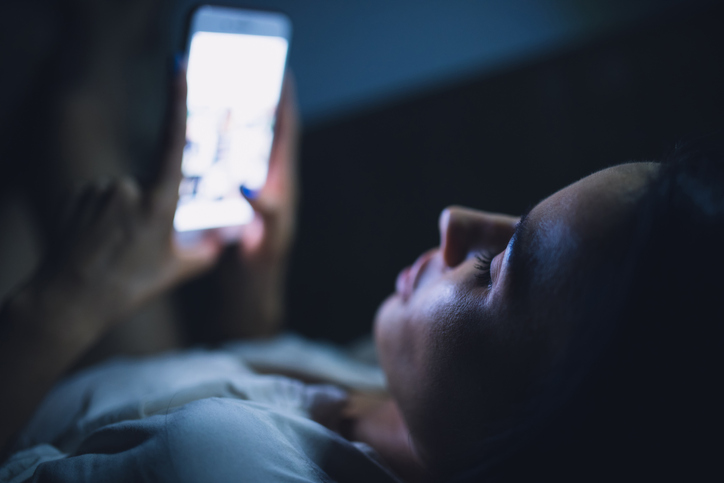
This one is quite obvious and known to most people – the blue light from the screen of your phone, laptop, and even the TV affects your sleep. The blue light makes you anxious, blocks the sleep hormone called melatonin, and disturbs the circadian rhythm which is the natural sleep cycle of your body.
You should out your phone aside at least 30 minutes before going to bed, and avoid watching anything on the laptop or TV as well. Try to read a book while you are in bed and sleep will come to you soon. If it’s extremely necessary to use your phone then enable the “reading mode” in your display settings which reduces blue light and turns the screen into a more comforting yellowish tint.
#2. Not having a fixed bedtime

Some nights you work late, some nights you are roaming out, some nights you stay in to binge watch your favorite series – and it makes things worse as there is no fixed time to sleep. Human body has evolved in a such a way that its circadian rhythm, or the biological clock, needs to work according to a pattern.
It’s not necessary that you go to bed early and wake up early. But find out a suitable time at which you should go to sleep everyday, and once you stick to the schedule for a few days – your biological clock will adjust and then you’ll start feeling sleepy around the same time every night.
#3. Late night snacking or having a heavy dinner

As much as you can, try to keep at least 2 hours of gap between your heavy dinner and your bedtime. Also, do not snack during night.
Studies have shown that eating during the night causes acid reflux and indigestion which can lead to restless or broken sleep, and even insomnia.
#4. Drinking caffeine any time after 4 PM

If you want to sleep on your fixed bedtime, it’s necessary that you follow a strict caffeine curfew that starts at 4 PM. Drinking coffee or tea pumps you up with the caffeine intake, which then prevents sleep. Many other drinks such hot chocolate, soda, and energy drinks are also packed with caffeine.
Best way to deal with this problem is to drink caffeine only in morning, probably once in afternoon if you really need it.
Instead, try these 9 beverages to take before bedtime for a quick and peaceful sleep.
#5. Hitting that snooze button
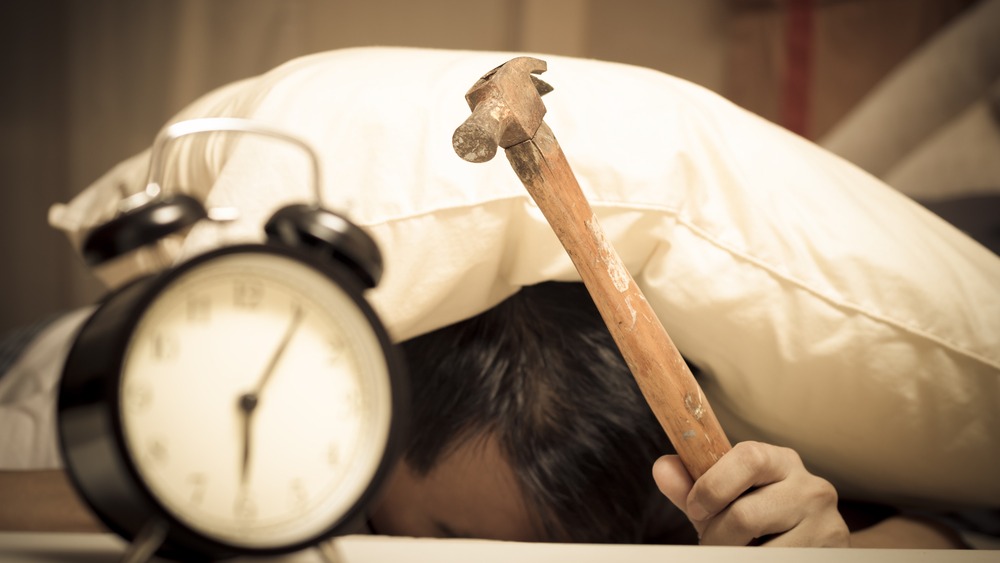
Snoozing for “five more minutes” or setting multiple alarms in a hope that you will “wake up to at least one of them” is not just a terrible idea but it’s harmful for your mental health as well.
Research has shown that snoozing and multiple alarms actually increases your cortisol levels, which is the stress hormone.
To deal with this problem, follow #2 advice in our article.
#6. Eating unhealthy foods

According to a study by National Health and Nutrition Evaluation Survey, if your body has any kind of vitamin or mineral deficiency then you’ll have trouble falling asleep.
Another research by NCBI shows that a high-calorie diet leads to poor sleep, and if you want to improve the quality of your sleep then you should prefer eating fruits, vegetables, and fiber.
Look out: Hidden signs of dangerous vitamin deficiency in your body.
#7. Lack of exercise
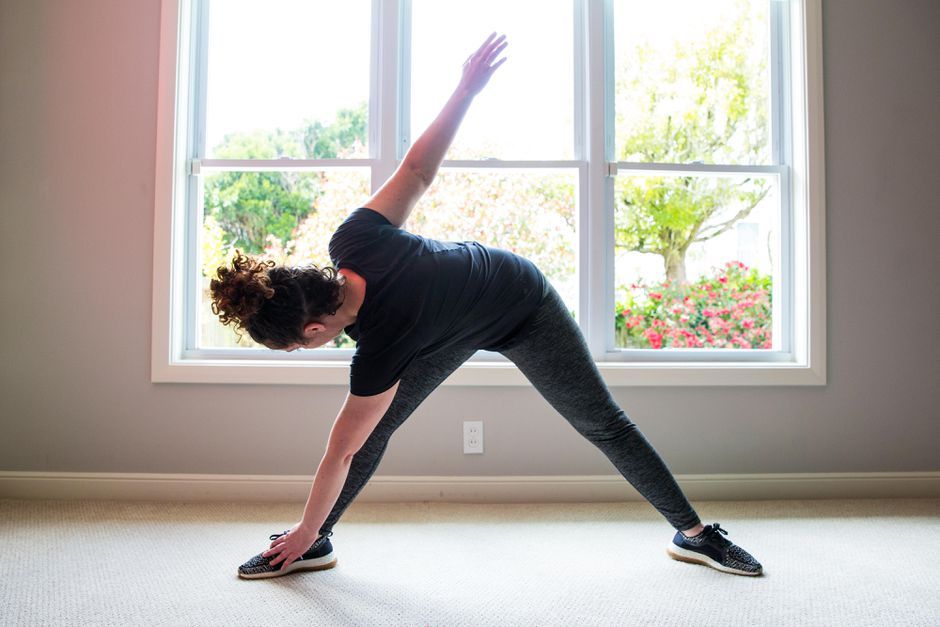
Many studies have shown that having regular exercise and physical activity can help you fall asleep faster, and your sleep will be more restful.
Just sticking to a moderate-level aerobic exercise plan, or 30 minutes of walking each day improves the quality of your sleep.
Stay motivated: 6 things you can do to efficiently work out at home.
#8. Messy and unorganized bedroom
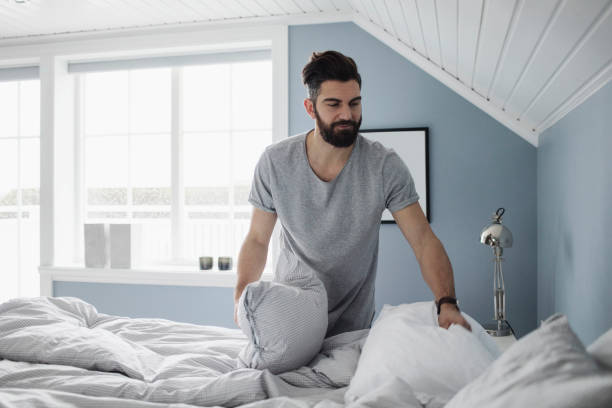
If your bedroom is full of clutter, with your clothes and books and other things just randomly strewn here and there – research says that it creates stress and amount to visual background noise which prevents your mind from going to rest.
Best thing to do is to keep work-related things out of the bedroom. Keep it organized and neat, and only things inside your bedroom should be which give you comfort or relaxation.
Featured Image Courtesy: Times of Malta

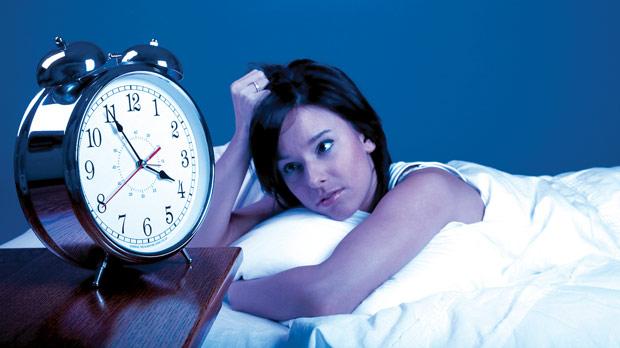
Comment here